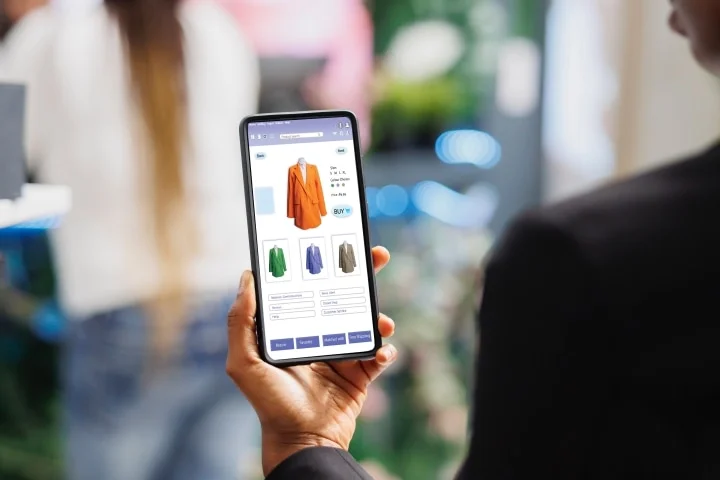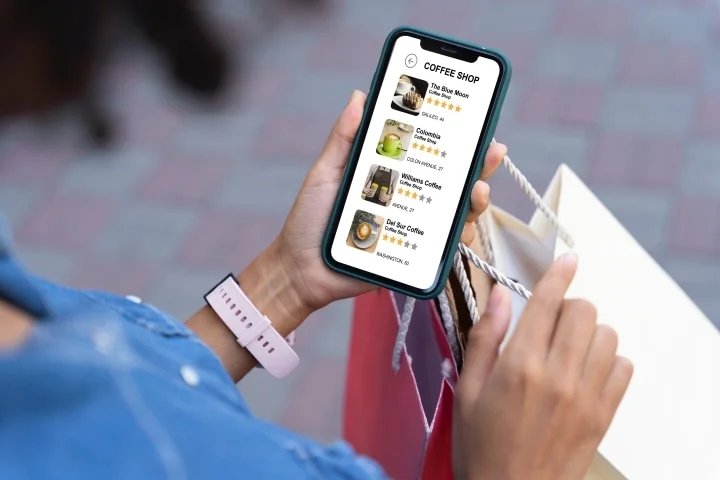Running a small or medium-sized business today is tougher than ever. Customers expect seamless, digital-first experiences, and competition is fierce. For SMEs in industries like construction, logistics, digital commerce, and finance, standing still is simply not an option.
More and more SMEs are realising that a mobile app is no longer just a nice add-on. A well-built app boosts customer engagement, improves retention, and enhances efficiency. It’s not only about pleasing customers; it also simplifies tasks for internal teams, helping companies maximise their resources.
At its core, a mobile app is a practical tool that supports growth, efficiency, and profitability. Mobile apps are no longer exclusive to large businesses; they are now accessible and effective investments for SMEs ready to embrace digital transformation.
Key Takeaways
By the end of this article, you will know that:
- Mobile apps are a high-impact investment for SMEs — they boost customer engagement, improve loyalty, and increase revenue even in competitive industries like construction, logistics, digital commerce, and finance.
- Personalisation and push notifications drive measurable results — tailored experiences and timely updates keep customers active, reduce churn, and strengthen trust.
- Loyalty programmes and smooth onboarding improve retention — repeat customers spend more, and first-time users stay engaged when apps are simple and rewarding to use.
- Feedback and analytics turn data into growth opportunities — insights help SMEs refine features, fix pain points, and adapt quickly to customer needs.
- Ongoing optimisation protects long-term ROI — regular updates and performance monitoring ensure the app stays fast, relevant, and profitable.
Why Mobile Apps Matter for SMEs Right Now
Customer expectations have shifted dramatically. People want fast, personalised interactions, and they will not wait around for clunky websites or outdated communication channels. For businesses, this means traditional methods of engaging customers are no longer enough.
At the same time, companies are under growing pressure to operate efficiently and make every investment count. There is increasing pressure to do more with less, especially in competitive areas like logistics and construction, where margins are tight.
This is why digital transformation for SMEs is essential, and mobile apps play a key role. They provide a direct and measurable way to meet customer needs while boosting business performance.
1. Strengthen Customer Relationships with Personalisation

One of the greatest strengths of a mobile app for businesses is the ability to provide tailored, relevant experiences. Customers value companies that understand their needs, and this personal touch helps businesses stand out in a crowded market. Rather than relying on generic promotions, an app allows you to deliver recommendations and offers that feel designed for each individual.
For example, an e-commerce platform can use mobile app personalisation to suggest products based on customers’ previous browsing behaviour. When customers feel valued, they are more likely to return.
This goes beyond positive experiences; personalisation directly affects loyalty and sales. Businesses that personalise their app experiences often report revenue uplifts of 25–30 per cent. Such growth can make a significant difference for SMEs facing larger competitors.
2. Drive Engagement with Push Notifications

Staying visible to customers is an ongoing challenge. Once someone leaves your website, they may not come back for weeks, or at all. Mobile app push notifications change this dynamic by allowing businesses to reach customers instantly with timely reminders, updates and offers.
Picture a logistics SME sending a notification to inform a client that their delivery will arrive in 15 minutes. The client appreciates the transparency, and the business strengthens its reputation for reliability. Similarly, a construction supplier can alert customers when an order is ready for pick-up. These small touches go a long way in building trust and satisfaction.
Over time, push notifications help companies stay top of mind. They encourage customers to open the app more frequently, increasing usage and reducing churn. For businesses looking to improve mobile app user retention, notifications are one of the simplest yet most effective tools.
3. Build Loyalty Through In-App Rewards
While attracting new customers is important, retaining current ones is usually more cost-effective. This is why a mobile app loyalty programme can be so valuable for companies. When businesses reward customers with points, discounts, or exclusive perks, it encourages engagement.

For example, a fintech company might offer credits or bonuses for regular payments through the app, driving consistent use. A marketplace app could reward customers for referring new users. These programmes create a cycle of engagement that benefits everyone involved.
The impact on revenue is clear. Repeat customers usually spend more, and they buy more often. A well-structured loyalty programme can therefore transform one-time buyers into long-term advocates, giving businesses a stronger foundation for sustainable growth.
4. Simplify Onboarding and Improve Retention
First impressions matter, especially when it comes to mobile apps. If the onboarding process is slow or confusing, users are quick to uninstall and never return. This is why investing in a reputable mobile app development agency is so important for enterprises looking to keep customers engaged from the start.

A finance app provides a good example. By guiding users through a simple tutorial that walks them step by step, the app helps them set up an account and make their first payment quickly. This reduces frustration and shows immediate value. Customers who see results straight away are more likely to stick around.
Good onboarding leads to better retention. By making the initial experience smooth, companies keep customers engaged and help them see value in the app. Over time, this builds stronger loyalty and a better return on the app investment.
5. Gain Insights with Feedback and Analytics
A mobile app is more than just a tool for customers; it is also a powerful source of insight. With built-in feedback mechanisms and analytics, businesses can track user behaviour, identify popular features, and spot needed improvements. This data helps companies move beyond guesswork and make informed decisions.

For instance, a construction business learns that site managers use an inventory feature but avoid the reporting dashboard. This insight indicates a usability issue that can be fixed, saving staff time and improving satisfaction. By acting on feedback, the company builds trust with users.
Analytics also reveal trends over time, allowing companies to spot opportunities or risks early. This ability to adapt quickly is crucial for staying competitive. Ultimately, feedback and analytics help the app grow along with customer needs and business goals.
6. Keep Performance Optimised for Long-Term Value
Launching an app is just the beginning. Without regular updates and performance optimisation, even the best apps can become slow, outdated, or insecure. For companies, these issues frustrate customers and hurt the return on investment.

For example, an online sneaker e-commerce platform might find that a slow checkout process causes customers to abandon their purchases. By monitoring performance and fixing issues promptly, the business can keep transactions running smoothly.
Maintaining performance goes beyond just fixing problems. It ensures the app stays relevant, reliable, and trusted over time. For SMEs, this ongoing attention protects both customer loyalty and profitability, making the app a lasting asset rather than a temporary project.
Practical Implementation Guide
Building a mobile app may seem overwhelming. In reality, it is simpler than many SMEs expect. The first step is discovery, where you define your business goals and identify customer pain points that the app should address. Clear goals at this stage help you avoid wasting time and ensure the app serves a purpose.
Next comes design and development. Work with someone experienced to turn your goals into a working app. Focus on keeping it simple, easy to use, and providing immediate value to customers.
Once launched, the app then enters a new phase: post-launch optimisation. You track analytics, gather feedback, and improve performance to keep the app meeting expectations. Over time, you can scale the app by adding new features such as loyalty programmes, integrations, or advanced personalisation. With the right approach, the app grows alongside the business.
Conclusion: An Investment in Growth, Not Just Tech
A mobile app is far more than just technology. For small and medium-sized enterprises (SMEs), it is a direct line to customers, a way to build loyalty, and a platform for efficiency. From personalisation and push notifications to loyalty programmes, onboarding, and analytics, apps bring clear benefits that boost profits and impact the bottom line.
Treating a mobile app as optional is no longer viable. Customers now expect speed, convenience, and relevance. Businesses that fail to deliver these risk being left behind. On the other hand, companies that embrace mobile apps often find themselves not only keeping up with competitors but also pulling ahead.
If you are ready to explore how a mobile app could increase engagement for your business, get in touch with us today. A short consultation could be the first step towards stronger customer relationships and long-term growth.













